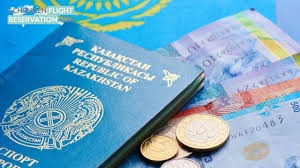
Navigating the intricacies of obtaining a US visa can be daunting, especially for citizens of New Zealand. Whether you’re planning a vacation, studying abroad, or considering a move to the United States, understanding the visa application process is crucial. As citizens of a Visa Waiver Program (VWP) country, New Zealanders enjoy certain privileges when visiting the US for short stays. However, for longer stays or specific purposes like work or study, different visa categories apply. This article aims to provide a comprehensive guide to US visas for citizens of New Zealand, outlining the types of visas available, the application process, and important considerations. US Visa for CITIZENS OF New Zealand
Visa Waiver Program (VWP) Eligibility
Citizens of New Zealand benefit from the Visa Waiver Program (VWP), which allows for visa-free travel to the US for up to 90 days for tourism or business purposes. To qualify for VWP, travelers must have an approved ESTA (Electronic System for Travel Authorization) before boarding a US-bound flight. ESTA applications can be completed online and are typically approved quickly, but it’s recommended to apply at least 72 hours before travel.
Types of Nonimmigrant Visas
For visits exceeding 90 days or for purposes other than tourism or business, New Zealand citizens need to apply for a nonimmigrant visa. The type of visa required depends on the purpose of the visit. Here are some common categories:
- B-1/B-2 Visitor Visa: The B-1 visa is for business-related visits, such as conferences or negotiations, while the B-2 visa is for tourism, vacations, or medical treatment. New Zealand citizens can apply for either visa individually or as a combined B-1/B-2 visa, depending on their travel needs.
- F-1 Student Visa: New Zealand students planning to study at a US academic institution need an F-1 visa. This visa allows for full-time study and may include optional practical training (OPT) after completing studies.
- J-1 Exchange Visitor Visa: The J-1 visa is for participants in exchange programs, including students, interns, teachers, and researchers. It promotes cultural exchange and requires sponsorship from an approved exchange program sponsor.
- H-1B Specialty Occupation Visa: For New Zealand professionals seeking employment in a specialty occupation in the US, the H-1B visa may be appropriate. This visa is employer-sponsored and requires the employer to petition on behalf of the applicant.
- E-3 Specialty Occupation Visa: Unique to citizens of Australia and New Zealand, the E-3 visa is for professionals in specialty occupations. It requires a job offer from a US employer and is a relatively streamlined process compared to other work visas.
Application Process
Regardless of the visa type, the application process generally includes the following steps:
- Complete Form DS-160: This online form collects biographical information about the applicant and the purpose of the visit.
- Schedule Visa Interview: Most visa applicants, including citizens of New Zealand, must attend a visa interview at the US embassy or consulate. Scheduling the interview should be done well in advance, as wait times can vary.
- Gather Required Documents: Documents typically required include a passport valid for travel to the US, passport-sized photo, DS-160 confirmation page, and any additional documents specific to the visa category (e.g., job offer letter for work visas, acceptance letter for student visas). US Visa for CITIZENS OF Poland
- Attend Visa Interview: During the interview, the consular officer will ask questions about the applicant’s background, purpose of travel, and ties to New Zealand. It’s essential to provide honest and concise answers.
Important Considerations
When applying for a US visa, citizens of New Zealand should keep the following considerations in mind:
- Travel Intentions: Be prepared to demonstrate the purpose of your visit and your intention to return to New Zealand after your stay in the US. Strong ties to your home country, such as family, employment, or property ownership, can support your application.
- Timely Application: Apply for your visa well in advance of your planned travel dates. Visa processing times can vary, and unforeseen delays may occur.
- Visa Denials: If your visa application is denied, you will receive a written explanation for the denial. Address any issues raised by the consular officer and consider reapplying if circumstances change.
- Duration of Stay: Understand the permitted duration of stay for your visa type and comply with US immigration laws to avoid overstaying your visa.
Conclusion
Navigating the US visa process as a citizen of New Zealand involves understanding the visa categories available, meeting application requirements, and preparing for a visa interview. Whether you’re visiting for leisure, studying, or working, thorough preparation and adherence to visa guidelines are key to a successful application. By familiarizing yourself with the process and seeking assistance when needed, you can ensure a smooth and enjoyable experience when traveling to the United States.




